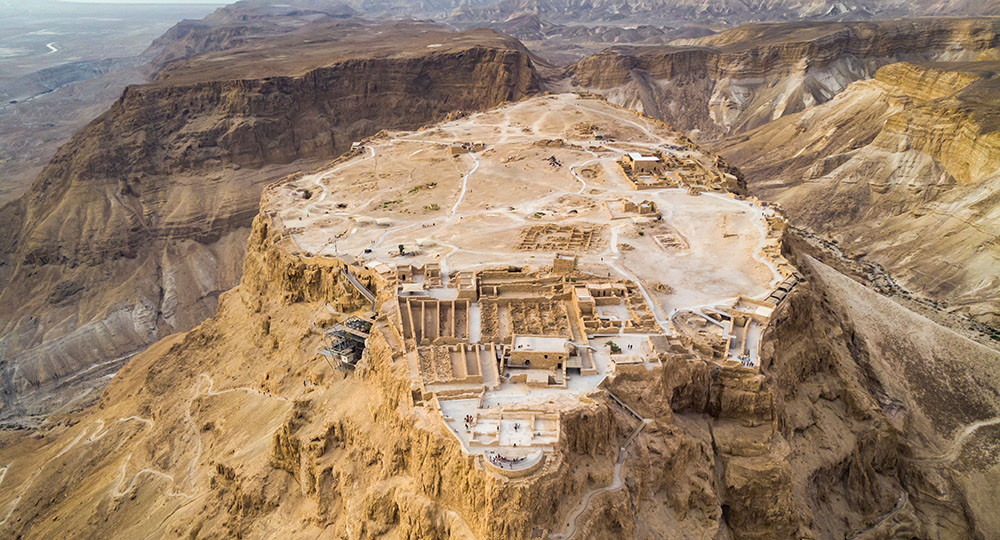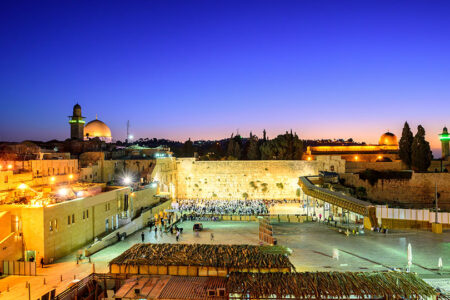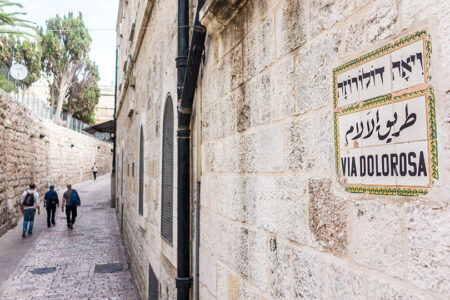Masada
Spectacular. Mighty. Imposing. Remarkable. All these words aptly describe this desert plateau that rises more than 1,400 feet above the shores of the Dead Sea. Views from this famous mountaintop fortress are stunning. This is Masada, Herod the Great’s summer “palace of refuge.”
Built between 37 and 31 BC, Masada treats visitors today to the remains of Herod’s huge storehouses, 12 massive cisterns that held several months’ worth of food and water, barracks, luxurious bathhouses, not one palace but two, a synagogue, and more.
About 100 years after Herod built Masada, it became home to a group of Jewish Zealots. After Jerusalem fell to the Romans in AD 70, it became the final holdout the Romans set out to conquer.
They assaulted Masada for two years. General Flavius Silva’s Roman legion built a siege ramp up the side of the mountain and used a massive battering ram to break through the heavily fortified gate—only to find more than 900 Jews led by Eleazer Ben Yair already dead. They had considered mass suicide preferable to becoming slaves of Rome.
Today Masada is a national symbol of heroism in Israel; and the words Masada, Never Again! encourage Israelis to continue fighting for their country and their freedom in an antisemitic world.
Located near En Gedi where David hid from King Saul in a cave, masada in Hebrew means “stronghold.” Scripture mentions strongholds in 1 Samuel 22:4–5; 23:14; 24:22; 2 Samuel 5:17; 23:14; and 1 Chronicles 11:16. Though we don’t know if David found refuge from his enemies at what later became Masada, it seems a possibility.
Yet, David knew his true stronghold was God, in whom he found refuge, strength, and comfort: “The LORD is my rock and my fortress and my deliverer; my God, my strength, in whom I will trust; my shield and the horn of my salvation, my stronghold” (Ps. 18:2).
David faced many enemies and, like us, struggled with doubt, fear, and uncertainty. A mountain refuge may protect us physically, but it will do nothing to combat the attacks of our true adversary. As the apostle Paul wrote,
For the weapons of our warfare are not carnal but mighty in God for pulling down strongholds, casting down arguments and every high thing that exalts itself against the knowledge of God, bringing every thought into captivity to the obedience of Christ (2 Cor. 10:4–5).
Satan’s fiery darts can only be extinguished by faith and by putting on the armor of God, “the sword of the Spirit, which is the word of God” (Eph. 6:17). May our hearts find comfort in His Word, knowing “God is our refuge and strength, a very present help in trouble” (Ps. 46:1).
Photo: Adobe Stock









Good presentation. My wife and I visited Israel and Masada. It was a great experience.